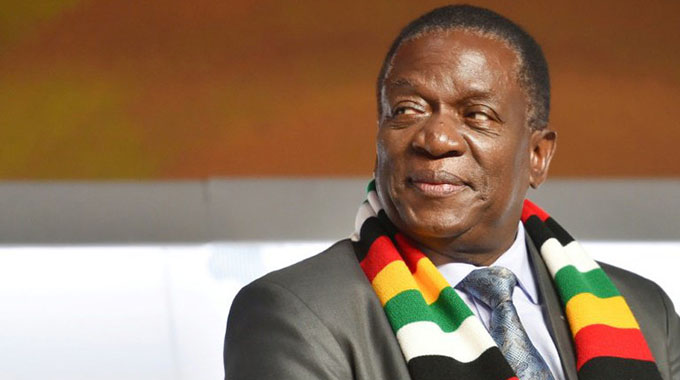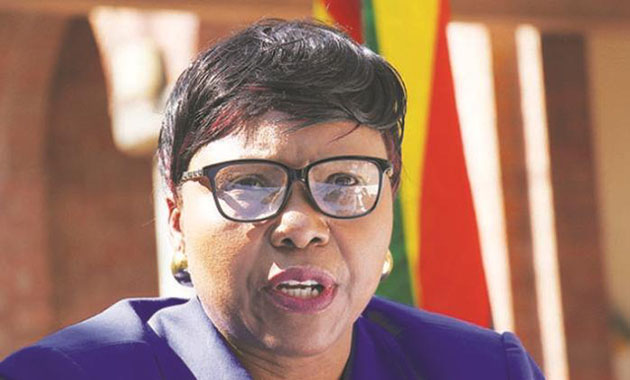Zanu-PF People’s Indaba: What’s at stake?

Tichaona Zindoga Political Editor
Next week, the ruling Zanu-PF party holds its 17th Annual People’s Conference at Mzingwane High School in Esigodini, Matabeleland South province.
This year’s conference comes a year after events that saw the resignation of former president and first secretary of the party, Robert Mugabe at the instance of Operation Restore Legacy, whereupon the party recalled him and replaced him with Cde Emmerson Mnangagwa, his former deputy and party Second Secretary whom he had unceremoniously dismissed a few weeks earlier.
In December, the ruling party held an Extraordinary Congress that affirmed Cde Mnangagwa as President and First Secretary and party Presidential candidate in this year’s harmonised elections.
The Extraordinary Congress also ratified resolutions of a Special Central Committee meeting held on November 19 that announced the recall of former president and first secretary Cde Robert Mugabe and expulsion of 26 members of the G40 cabal.
The G40 cabal was a clique of ambitious individuals that coalesced around the former president with the elderly statesman’s wife, Grace, playing the key conductor of the divisive group.
A year later, the party is back to normal business after the historic rapture, and the conference takes an opportunity to take stock of developments in the intervening period.
According to the party’s constitution, a “people’s conference” is composed of members of the Central Committee; the National Consultative Assembly; the National Council of the Women’s League, National Council of the Youth League; the Provincial Coordinating Committees and provincial councils.
Conference sits on two sessions, namely, as convened once every year in ordinary sessions or at any time in special or extraordinary session or conducted as laid down for Congress.
The powers and functions of the National People’s Conference are prescribed as:
(1) to receive and consider reports of the Central Committee on behalf of Congress;
(2) to co-ordinate and supervise the implementation of decisions and programmes of Congress by the Central Committee;
(3) to declare the President of the Party elected at Congress as the State Presidential candidate of the Party;
(4) to exercise any such powers and authority as may be incidental thereto;
(5) to make resolutions for implementation by the Central Committee.
What is at stake?
For the next week, Zimbabwe’s attention will be trained on the indaba because Zanu-PF is the ruling party and will be charged to address various issues and problems affecting the country.
Not least, the ruling party asserts that it is superior to Government thus gives direction to what the latter does (or does not do). Conversely, it takes responsibility for the state of the country under its rule.
The President’s address of the conference carries equal weight as the State of the Nation Address.
Ordinarily, the party touches on a range of issues of national life as reflected in the party’s own organs and thematic areas such as administration and finances, its state of organisation (commissariat), external relations, national security, transport and welfare; economy, social services, women and youths, land and agriculture; war veterans affairs, and so on.
It’s the economy . . .
Zimbabwe is currently in the throes of economic challenges that have seen shortages of fuel and the rising of prices of basic commodities.
The problems largely stem from the shortage of foreign currency in the country which has led to inflation and erosion of the value of the local currency.
Zimbabwe’s economy has suffered structural dislocation in the last two decades attending to local and international pressures. It is common knowledge that when Zimbabwe made the decision to redistribute land under the Ararian Reform Programme, it torched off a storm that would batter its economy as Western countries imposed sanctions on the Southern African country at the instigation of Britain.
That story has well been told.
Sanctions remain in place. Equally, Zimbabweans, including the ruling Zanu-PF, have identified their own errors of commission and omission.
When President Mnangagwa came in, he urged the country not to continuously hold onto the scapegoat of sanctions and devise ways to revive the economy without being bogged down by the embargo.
He has declared that Zimbabwe is open for business and has instituted measures to ensure that the country moves forward. The measures are also tied to engagement and re-engaging and mending relations with the international community.
Yet, Cde Mnangagwa’s task is not an easy one.
At this conference, he will have to convince the party faithful that he has the plan.
He has to show the world that his party has the capacity to turn around the economy, deliver Christmas this year and ensure a sustainable economic future.
That is why this edition of the conference will be important. No doubt, Zanu-PF itself as a ruling party must be feeling the heat.
The heat is on right now, and the stakes are high.
The next instalment deals with another important aspect of the conference. Kindly feedback to [email protected]









Comments